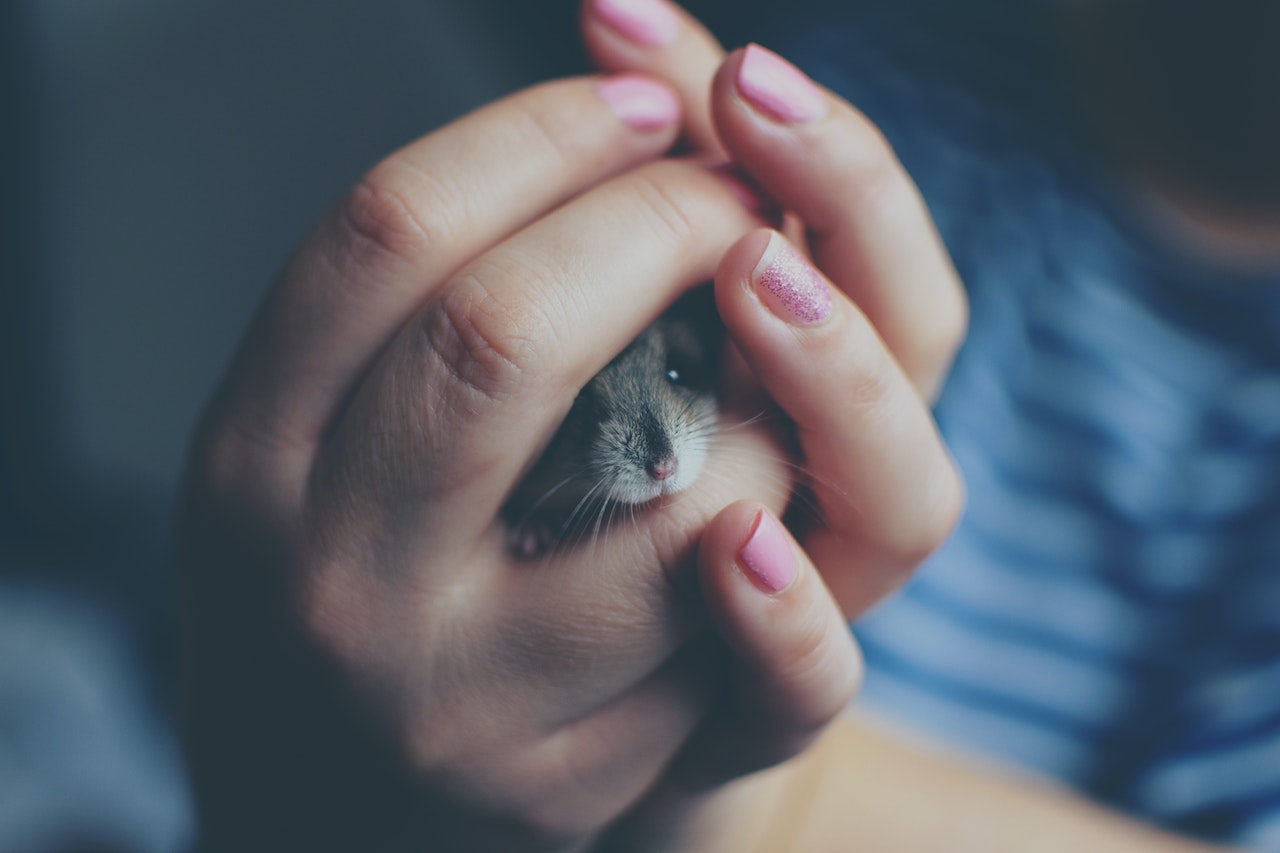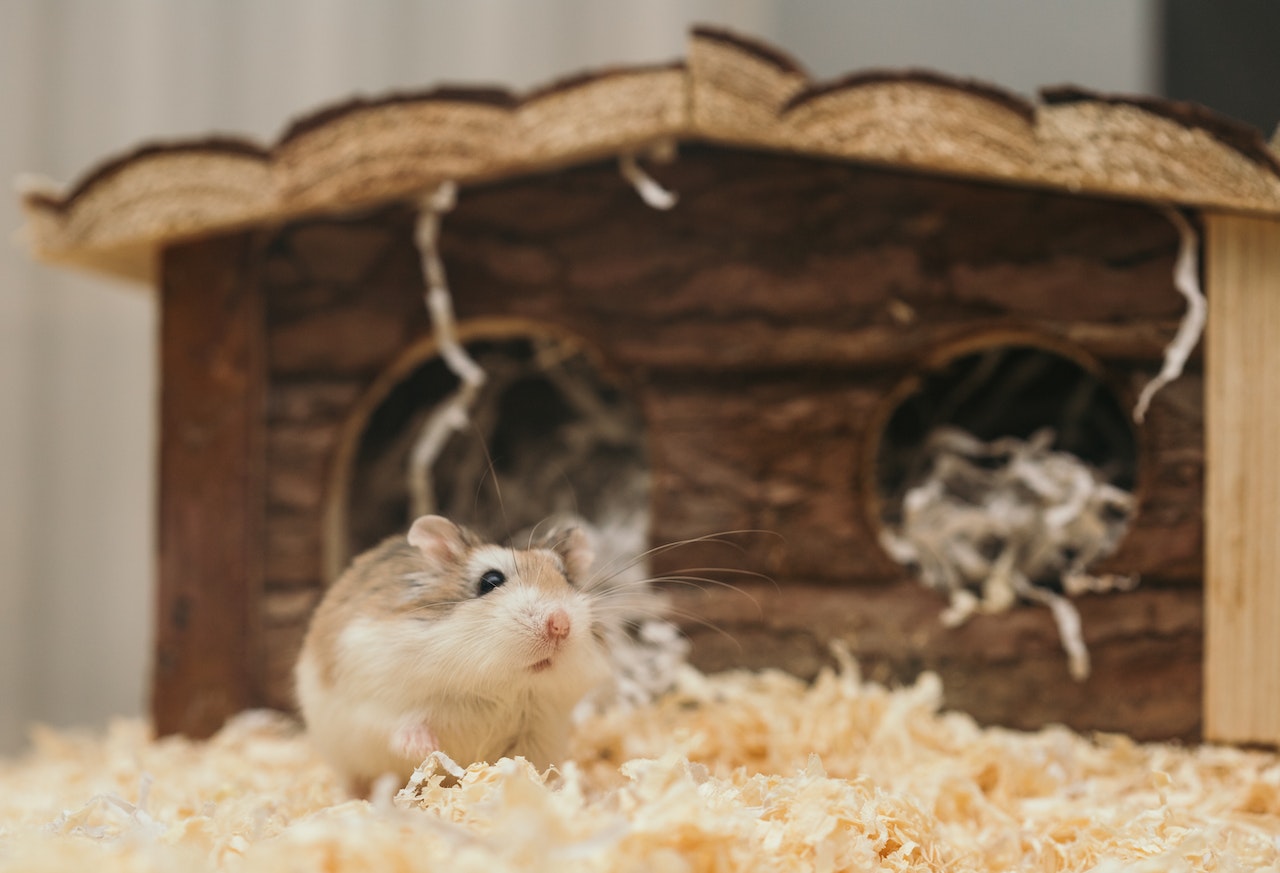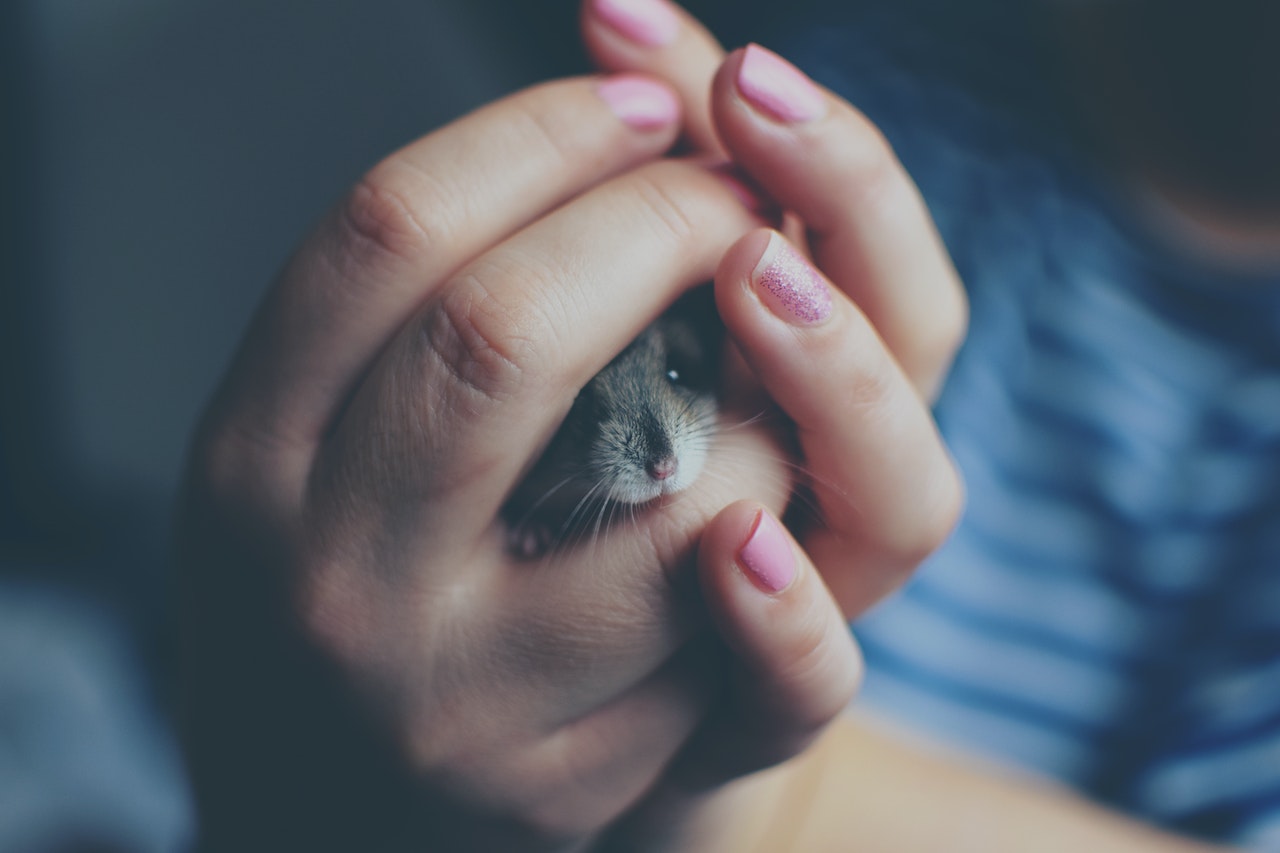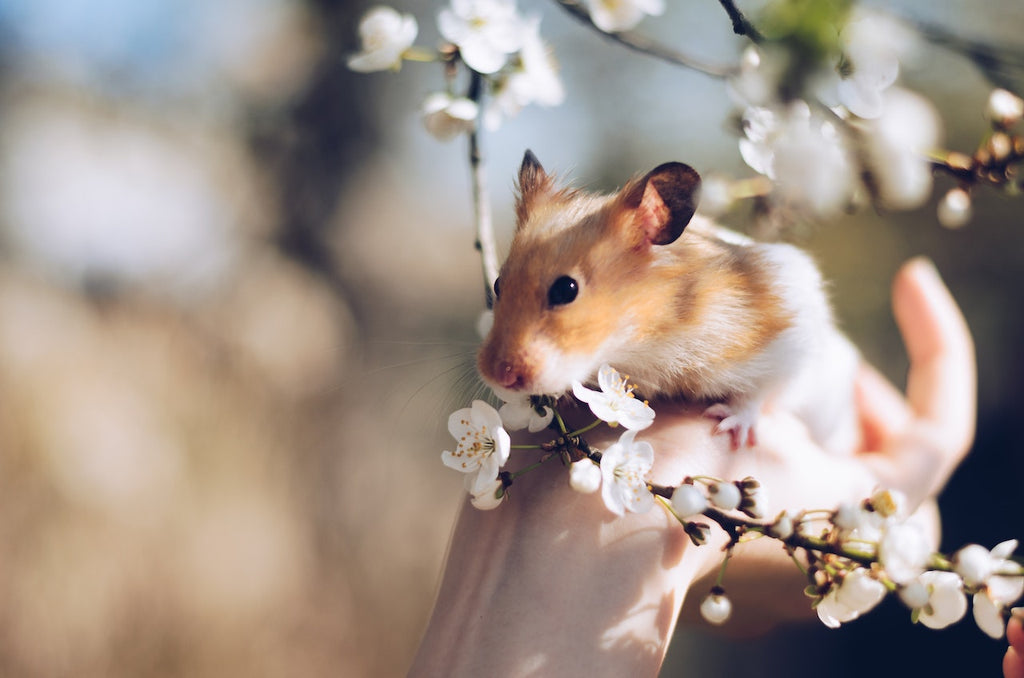
Peppers are very nutritious, delicious, and may offer variety to a hamster's diet. Species like the bell pepper contain nutrients that could be beneficial to hamsters, but they also pack some heat that you as a pet owner would want to watch out for. It is also important to note that not all peppers have the same properties and when it comes to hamsters you'll want to avoid some and stick to others.
In this article, you will find out which peppers are safe for hamsters to enjoy and which ones are definitely meant to be kept out of their cage.
Can Hamsters Safely Eat Peppers?
Yes, hamsters can safely eat peppers. For example, bell peppers, especially green ones, are safe for hamsters and provide vitamin C, vitamin A, and other nutrients. However, peppers do contain a lot of water, so only give your hamster a small piece at a time to avoid diarrhea.
Red, yellow and orange peppers are also fine to give as an occasional treat, but avoid the spicy varieties which can irritate your hamster's stomachs. Peppers are a crunchy veggie that most hamsters enjoy, but as with any new food, introduce them slowly and watch for any negative reactions the first time.
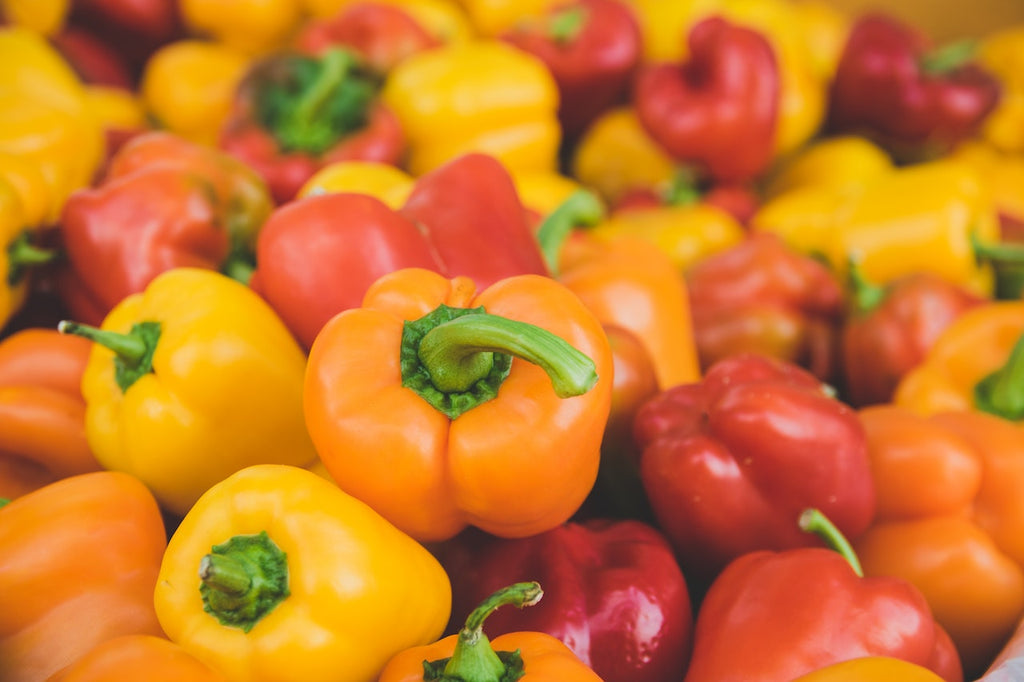
Can Syrian Hamsters Eat Peppers?
In short, yes Syrian hamsters can eat peppers in moderation. These peppers contain a good amount of vitamin C. However, due to their sugar content, peppers should only make up a small part of a hamster's diet. Bell peppers, in particular, are safe for hamsters to eat and provide nutritional benefits when fed properly.
Can Roborovski Hamsters Eat Peppers?
Yes, Roborovski hamsters can eat certain types of peppers in moderation. Bell peppers, especially the red, yellow and green peppers are safe for your hamster's consumption. They are good sources of vitamin C and antioxidants. However, spicy peppers should be avoided because hamsters have sensitive digestive systems.
Can Dwarf Hamsters Safely Eat Peppers?
Yes, dwarf hamsters can eat some types of peppers in moderation. Bell peppers and chili peppers that are not too spicy should be safe for your dwarf hamster to eat in small amounts as an occasional treat. However, be very careful and only give your hamster a tiny piece of pepper at first to make sure they do not have a bad reaction.
Types of Peppers That Are Safe for Hamsters
Bell peppers
especially red, yellow and green peppers, are safe for hamsters in moderation. Remove the seeds first, as they can be choking hazards, then slice the pepper into small bite-sized pieces your hamster can nibble on.
Sweet mini peppers
can also be given on occasion, but limit treats to no more than one per week so your hamster maintains a balanced diet.
Types of Peppers That Are Unsafe for Hamsters
Certain peppers can be harmful to hamsters and should be avoided. Such types may include:
Chili peppers
This type is too spicy and carries a lot of heat. Chili peppers contain capsaicin which can irritate a hamster's stomach. Yes, there are sweet and mild chili peppers but it would be best not to feed your hamster any.
Bell peppers
Although bell peppers are considered safe treats and are not spicy, their seeds and stems contain solanine, a toxin that may make hamsters sick if eaten in large amounts.
Jalapeño or habanero peppers
These peppers are far too spicy and pungent for a hamster. Ingesting them can lead to gastrointestinal distress so it's best to keep them off your pet's menu.
In summary, it's recommended to keep hamsters far away from any type of pepper that could jeopardize their health. Their small size and sensitive digestive systems mean that even a small amount of pepper can make them unwell. So when in doubt, talk to a veterinarian or don't give your hamster any pepper at all.
Nutritional Benefits Hamsters Can Gain From Peppers
Peppers contain many nutrients that are great for your hamster, especially vitamin C.
Bell peppers contain lots of vitamin C, which helps support your hamster's immune system and collagen production. Vitamin C also acts as an antioxidant, protecting cells from damage caused by oxidative stress.
Peppers are also rich in minerals like iron which helps to keep anemia at bay as well as carbs which is quite helpful in providing energy for your hamster's activities.
Risks of Feeding Hamsters Peppers
Hamsters can eat peppers in moderation, but there are some risks to be aware of:
- Peppers contain a compound called capsaicin which can irritate a hamster's stomach. Only offer small amounts, especially when first introducing peppers.
- The seeds and stems could be choking hazards. Remove them before offering peppers to your hamster.
- Too many peppers can lead to diarrhea or an upset stomach in hamsters. Limit peppers to no more than 1-2 small pieces a week.
- Some peppers are high in sugar and may lead to obesity or diabetes if overfed. Use peppers as an occasional treat only.
- Some hamsters may show adverse reactions the first time so discontinue immediately if there is a bad reaction.
So while hamsters can enjoy peppers in moderation, be very cautious and aware of these risks to keep your furry friend happy and healthy. Offer peppers sparingly and in small amounts, watching closely for any signs of trouble. Better safe than sorry!
How to Serve Hamsters Peppers
With the proper introduction and moderation, peppers can make a tasty treat and add variety to a hamster's diet. To feed your hamster this food, ensure to:
- Wash and deseed a small slice of bell pepper.
- Cut them into bite-sized pieces. Bell peppers have a mild flavor and crunchy texture that most hamsters enjoy.
- Offer a few pieces at a time in a shallow dish, so your hamster can eat at their own pace.
- Remove any uneaten bits after a couple hours to avoid spoilage.
Start with just one type of pepper, like red, yellow or green bell peppers. Once your hamster accepts them, you can try other varieties. But avoid spicy peppers, as their heat can irritate a hamster’s stomach.
What Can You Find in a Normal Hamster Diet?
Hamsters are omnivores, meaning they eat both plant and animal matter. Their diet usually should consist of:
- Commercial hamster pellets which provide balanced nutrition as the staple of their diet.
- Protein sources such as insects like mealworms, crickets and waxworms given two to three times weekly.
- Fruits and veggies: Cucumber, carrots, bell peppers, broccoli and fruits like apples, berries 2-3 times a week.
- Timothy hay which is essential for chewing and digestion.
- Clean, fresh water: Change water daily and always have some available.
With the right combination of commercial feed, proteins, fruits, and vegetables in moderation, your hamster will maintain a healthy diet. Be very careful to only introduce one new food at a time in small amounts.
Conclusion
Peppers can absolutely be part of a healthy diet for your little furry friend, as long as you take proper precautions. Offer small amounts at first and watch to make sure they don’t cause any digestive upset. Remove the seeds, stems and leaves which can be choking hazards.
By taking it slow and being careful, you’ll find that peppers can add nutrition, variety and maybe even a little kick to your hamster’s regular meals.

